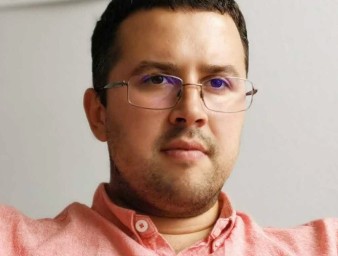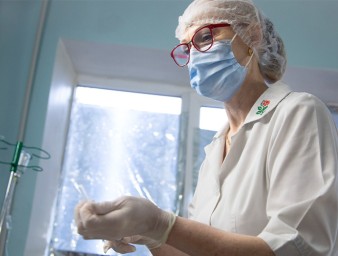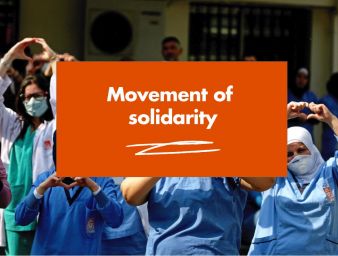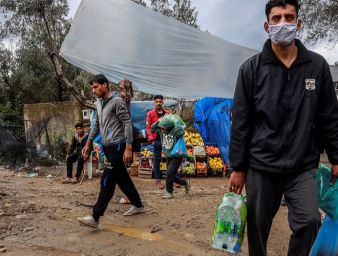Advocating for human rights in Ukraine amidst the pandemic
18 August 2020
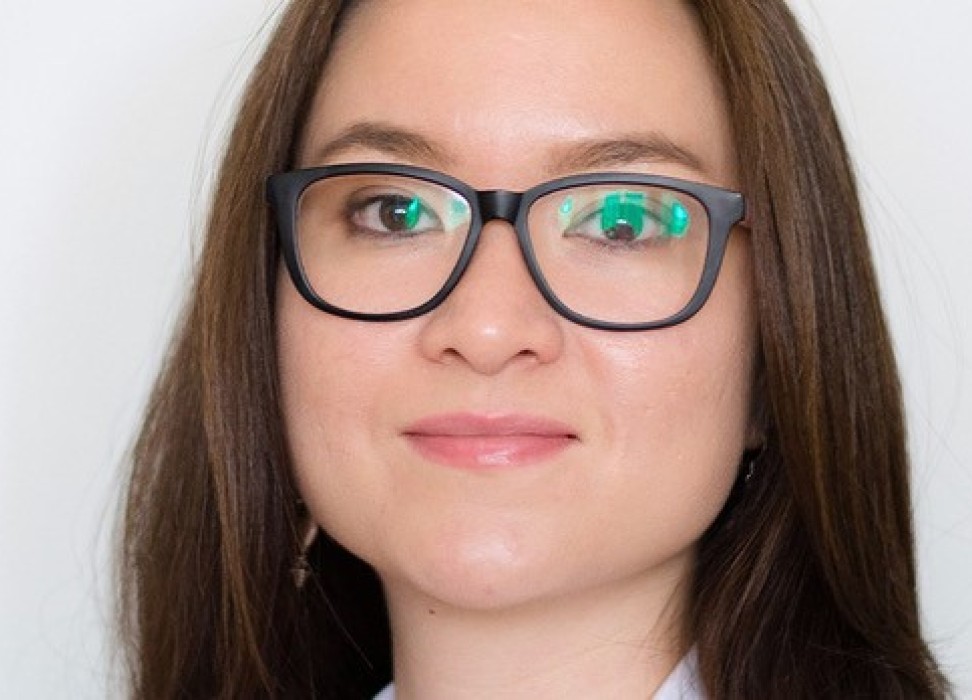
Ukraine, which recorded its first case of COVID-19 on 3 March 2020, has been hard hit by the pandemic and its consequences. At the time of writing, there were 92,820 cases and 2,089 people had died (source: World Health Organization).
The UN Human Rights Monitoring Mission in Ukraine has been responding to the crisis since it began, documenting human rights violations, and speaking out on behalf of those in the most vulnerable situations.
Nigora Sachdeva is Head of the Kramatorsk Field Office for the UN Human Rights Monitoring Mission in Ukraine.
How has COVID-19 affected your work?
The COVID-19 crisis has added another layer of complexity to our work in Ukraine. However, we continue to gather first-hand information, talk to victims and witnesses of human rights violations and conduct offline and online monitoring.
To conduct our interviews, we use the telephone or the internet more than before. When the situation allows us to be physically present on the ground and to keep a safe distance, we continue to do so. Recently for example, we went to two places along the contact line in eastern Ukraine – the delineation between armed group-controlled territory and Government-controlled territory - to monitor the simultaneous release of conflict-related detainees under the Minsk agreements. Similarly, we continue to conduct field trips to monitor issues with freedom of movement at entry-exit crossing points across the contact line, following the introduction of quarantine measures.
What is UN Human Rights doing to protect the rights of people during this epidemic?
We continue to bring the voices of civilians affected by the conflict to decision-makers and international partners through our reports, communication activities and advocacy efforts.
At the field level, we are documenting human rights violations. We also continue to gather information through our network of contacts with local activists, civil society organisations, local authorities and the military.
We are paying more attention to those in the most vulnerable situations, including people in places of detention, older persons, homeless people, Roma and persons with disabilities. These groups are likely to be disproportionately affected by the crisis and at risk of being forgotten. The information we gather is shared with national stakeholders and international partners so that decision-makers can base their decisions on our information and change the situation for the better.
As an example, we identified a problem with the spread of COVID-19 in penitentiary institutions in Ukraine and reached out to the Ministry of Justice of Ukraine and to the self-proclaimed 'Donetsk people's republic' and 'Luhansk people's republic.' Our advocacy letters and guidance notes, supported by public communications on possible measures to mitigate the spread and impact of the virus on the facilities and inmates, hopefully contributed to better preparedness of the penitentiary system.
What are the main human rights issues at stake in Ukraine in the COVID-19 response?
In Government-controlled parts of Donetsk and Luhansk regions, where I work, COVID-19-related restrictions on freedom of movement remain one of the most serious problems for the local population, especially for civilians crossing the contact line that separates government-controlled and armed group-controlled territories. This affects the enjoyment of the rights to health, food, family life and social security of these individuals.
Before the COVID-19 outbreak, over a million individuals were crossing the contact line in both directions each month. Since the end of March, when all crossing points were effectively closed, this figure shrank to several hundreds. Together with our international and national partners, we have been advocating for facilitation of crossings on humanitarian grounds, and to a structured reopening of crossing points when the epidemiological situation allows. Since mid-June, our advocacy started to bear fruit: crossing points started to reopen and hundreds of civilians began to cross per day. It is still well below pre-pandemic figures, and the process of crossing is complicated and tiresome, but it is already a huge relief to those who ultimately managed to cross.
Other issues that are of concern are not region-specific and affect the whole country. Quarantine measures have hit those who were already in vulnerable situations the hardest. For example, members of the Roma community have told us about the deterioration of their already limited access to an adequate standard of living, including access to water and sanitation, food, healthcare, and social security. The vulnerability of women and girls to gender-based violence has increased due to an erosion of their financial independence and quarantine-imposed confinement. This negative impact is particularly painful for those living in isolated communities and along the contact line in eastern Ukraine. Furthermore, homeless people face a significant challenge accessing even basic facilities and resources during the coronavirus pandemic.
COVID-19 quarantine measures are also having a big impact on the administration of justice: in some instances, legal proceedings that were already protracted may be further delayed, and many people do not have access to legal recourse due to quarantine restrictions.
Biggest challenges and lessons learned thus far during the pandemic?
The biggest challenges in my work during the pandemic remains the limited face-to-face interactions with victims and witnesses of human rights violations, access to detention facilities, and to isolated settlements along the contact line. Despite numerous calls for a ceasefire, the conflict in eastern Ukraine remains active and we regularly receive reports of civilian casualties and damage to civilian objects. We observed several spikes in hostilities and civilian casualties when the pandemic reached Ukraine. Though we do not think they were directly related to the pandemic, we are still concerned that with all attention being swamped by COVID-19, the need for continued protection of civilians in the conflict zone might become less visible. We therefore need to invest additional efforts into our protection advocacy.
One of the key lessons learned is that we can continue to do our work by using technology creatively. The close contacts that we established prior to the pandemic are also of great help to ensure that we continue to receive information on human rights violations and can advocate for victims' rights.
Why is it important to stand up for human rights during this pandemic?
The pandemic has shown us that all societies have vulnerabilities, and demonstrated how interconnected we all are. Any solutions to the COVID-19 crisis will have to be inclusive and will require a concerted effort from all States and individuals. We have a daunting challenge at hand, but also an opportunity to put our differences aside and work on this together, while ensuring full respect for, and protection of, human rights.
In the region where I work, as in many regions in Ukraine and around the world, we remain one of the last avenues people can turn to when human rights violations occur. We are usually the first to identify people in vulnerable situations and advocate for their rights to ensure that no one is left behind. If everyone – the Government, civil society, and private sector – put human rights front and centre of this crisis, we would have a chance to foster a more inclusive societal COVID-19 response, not only in the region where I work, but also throughout the world.
Video
18 August 2020

